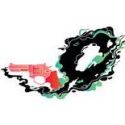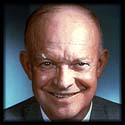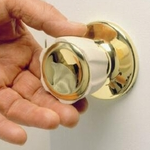|
I think either method works. The idea is to make sure you're not spending more than you have, which both ways cover. Having a cash account has the advantage of being much more useful for reports, so you can see exactly where your cash spending is going to. The disadvantage is it takes more time to track. Not having a cash account has the opposite advantages and disadvantages; it takes far less time, but you lose the ability to see where you are spending your cash. Really it just comes down to personal preference and you could argue about it all day.
|
|
|
|

|
| # ? May 14, 2024 20:22 |
|
How do you guys budget an FSA account? You sign up for how much is coming out of your account before the start of the year, and at the start of the year you get the entire annual amount available to spend, even though it is only coming out of your paycheck in biweekly payments. Since it is available immediately, should I just budget it as one big funding for January 1st? The deductions from my paycheck happen automatically, so I'm not worried about tracking that. Second, how do I account for the fact that the FSA money is not fungible like other accounts? Since I can only spend it on medical stuff, I do not want to be able to reduce the amount there in my budget to add else where. I suppose I just make "FSA Medical (DO NOT TRANSFER FROM)" as the category name and just put the entire year payment in that.
|
|
|
|
http://www.youneedabudget.com/support/article/flexible-spending-accounts Personally I just keep my HSA as an off-budget account and don't log any transactions that are paid from it. It only exists in YNAB so I can keep an eye on the balance. I do lose the ability to see my medical expenses in YNAB's reporting but I can live with that.
|
|
|
|
HSA I would agree with you, but FSA has an impetus to spend or lose so I need to keep a closer eye on it. Thanks for the link, that gives me options.
|
|
|
|
GreatGreen posted:Yep. I'm still manually tracking every cash purchase, just not in a separate account. I guess it works for me because I usually just pull out cash that I need - going to buy gas or pay for a dinner. I usually use it the same day, and everything reconciles as soon as the cash is used up. But to each their own  I think it's more thorough than throwing your cash withdrawals into a misc category and not knowing where you spend it. I think it's more thorough than throwing your cash withdrawals into a misc category and not knowing where you spend it.
|
|
|
|
Annoying new-year new guy popping in. I'm thinking of moving to YNAB because I hate quicken so much, and I think my wife and I need to be more hands-on with our money. On the plus side, we're "ok" with money, and I think we're pretty much coming into this on step 4(?). We have a pretty healthy checking account balance and some other sub-accounts for step-2 type purposes. My first question is, when I'm setting up YNAB for the first time, making the assumption that I feel like we're already a month ahead, am I going to be taking the ~$10k or so in checking and deciding what starting balance I think we should have for each spending category in there? I was thrown off in the intro video for YNAB because I don't have any immediate needs for the money that's coming in. My second question is, should we eliminate our bank's sub accounts? Is it extra work "spending" the money from your budget to a different account because it's out of our checking account? I think I'm ready to do this, my #1 gripe is that my wife and I just don't really care enough about the budget because it's just not a priority. But using YNAB will be spending to a budget, and not a bank balance.
|
|
|
|
Yeah, sounds like you're already step 4 material. I'd just start by putting in your current bank balance, then going to the budget section and adding in your bills for the next month and seeing what your surplus is, then probably create a emergency fund based off of that (if you don't already have money set aside), then pretty much go straight to rule 4 with any additional income. If you can pay all of your bills straight from the budget and you don't need your sub accounts anymore, you can probably get rid of them, I think sub accounts are for people who need a way to put money to the side for paying bills and what not.
|
|
|
|
Chin Strap posted:How do you guys budget an FSA account? You sign up for how much is coming out of your account before the start of the year, and at the start of the year you get the entire annual amount available to spend, even though it is only coming out of your paycheck in biweekly payments. I have my FSA as an off budget account and put my contribution as one funding on January 1st. To log transactions, I just do outflows that aren't categorized in my budget. This also means I don't account for that spending in my actual budget. It has worked fine for me so far!
|
|
|
|
dreesemonkey posted:My second question is, should we eliminate our bank's sub accounts? Is it extra work "spending" the money from your budget to a different account because it's out of our checking account? I guess it depends what purpose the other accounts serve? I had a bunch of accounts, but they were for segregating the money so I didn't spend it and specific goals. Now that I have my budget laid out and goals clearly defined I closed all the accounts apart from a single checking and a single savings account. There are other investments and term deposits but in terms of standard accounts, they were all consolidated. I use the YNAB mobile app to "check my balance" as opposed to my actual account now so it doesn't really matter where the money is.
|
|
|
|
I have a bank account and a credit union account. I've been siphoning off $100 from every paycheck to the credit union, which I don't have a debit card for and is therefore difficult to use. It is currently Off Budget. I have enough in the CU for about 4 months emergency savings (I'll know more once I get a baseline YNAB budget reading in a couple months) I also have about twice that CU balance in Student Loans, which I've been paying off with moderate aggression. So, I could be on step 4 instantly if I put my CU account "on budget." Should I do that? Or try to get my bank account up to step 4? Should I wait until I have 6 months' savings? Should I eliminate one of my student loans (6.8%)?
|
|
|
|
Defenestration posted:I have a bank account and a credit union account. I've been siphoning off $100 from every paycheck to the credit union, which I don't have a debit card for and is therefore difficult to use. It is currently Off Budget. You should have your CU account on budget and just put everything in it to your emergency fund category. The one problem with multiple accounts, as Xik mentions, is you might think you have $500 to spend (by your budget) but really your bank has $200 and CU has $300. If you have enough emergency fund to cover next month's budget you are only deluding yourself by not going to rule 4. If on January 31st you lost your job and stopped getting paid you'd have to budget February with your emergency fund so you might as well start dipping into it now to make your life easier with YNAB. For loan payback you should mess with a repayment calculator, your loan company will have one. For example, I'm old and mine is like 2-3% so paying off today vs letting the loan ride out would save me like $1000 over 10 years. I'd rather keep the money invested because I'll make more money than I will save. You also have evaluate how risk averse you are. If you empty your savings paying off your loan but an emergency happens next month you might have to float it on a credit card at 24% interest for a month or two.
|
|
|
|
Gothmog1065 posted:If you can pay all of your bills straight from the budget and you don't need your sub accounts anymore, you can probably get rid of them, I think sub accounts are for people who need a way to put money to the side for paying bills and what not. Xik posted:I guess it depends what purpose the other accounts serve? Thanks, I decided to merge my two extra accounts back into my checking, one was specifically for car repairs, the other was irregular, large expense (insurance, heating, etc). I also deposited my cash envelope of blow money to just keep track of it in YNAB, which will be much more convinient. We more or less started february's budget of what we think we're going to be spending and applying that to our starting balance for this month to put us a month ahead in each category, any excess was put away as our emergency fund. Next question: Overbudgeting. My wife is off work right now and we're going to be spending more money than we make until she's back and her checks start rolling in again. Is being "overbudget" a big deal? Should your "available to budget" always going to be 0? I guess it's hard for me to understand until we start entering expenses for next month to see what's going to happen when you're living off your surplus. I got paid today and I added those to "Income available for February" but I'm still overbudget by quite a bit more than my next check will be. If it helps I can add a screenshot. I think it will take us a month or two to grasp what's going on and tweak, but I'm excited.
|
|
|
|
Put the excess in an emergency fund category, you always want to have a category assigned for every dollar. Use a negative number in the emergency category to pull money out and into your general budget.
|
|
|
|
Yeah, budgeting to 0 gives every dollar a job. We've got our emergency fund and then also a buffer category. What happens is that when I go over in my beer money category, I see that I have to move money from a different category--either my work lunches or clothes or whatever. If we overspend on groceries, then we have to move money from transportation or household goods or something. Having the money in the buffer keeps us from just complacently frittering money away when we go over. We have to make changes for that month and then decide (or track) whether it was a one-off or if we need to re-evaluate the monthly budget. The buffer is there because my wife's going to head back to grad school soon and so we're trying to give ourselves a little extra cushion on top of the EF.
|
|
|
|
So you've created a "budgeting is hard" category. That works, but the idea is to either assign enough that you don't go over in a category or discipline yourself into not going over. If your e-fund runs out you won't be able just assign more each month.
|
|
|
|
dreesemonkey posted:Thanks, I decided to merge my two extra accounts back into my checking, one was specifically for car repairs, the other was irregular, large expense (insurance, heating, etc). I also deposited my cash envelope of blow money to just keep track of it in YNAB, which will be much more convinient. If you blow your budget for one month but are already at rule 4, that money just gets dropped out of the available balance to budget for the next month. So, if you end up overbudget in January by $300 but have $2000 to budget with in February, you'll have $1700 to budget with by virtue of the overspending. Also you can take your income you receive in January and indicate it as "Income for February" instead of "Income for January". This basically means it doesn't become available to the January budget but will be available for the February budget when February rolls around. It keeps your budgetary picture of January very clean once you settle a budget at the beginning of January.
|
|
|
|
Every big catagory I have pretty much has some version of "Misc" for me. If don't know where it goes, it goes in the emergency fund. If I need to move money around, I do, which is why YNAB is appealing to me anyway.
|
|
|
|
Has anyone ever had a charge not show up? I bought food at a restaurant back on December 6th and it still has not appeared on my card. I vaguely remember leaving a tip as well, so I would think it would have had to go through. I double checked with a credit card that it was slightly possible I used instead just in case and its not there either. My available balances all match up perfectly, so I don't think I missed the transaction. I can't find another transaction of the same amount or for the restaurant I went to. I have gone there before back in August and its pretty clear that the transaction is from there. Its not like it has a strange name when it gets charged to your card. I kinda want to close out the transaction one way or the other. Is past 30 days pretty much mean I did get a free lunch?
|
|
|
|
One time that happened to me and it turned out I had accidentally used an expired card and no one involved in the transaction had noticed.
|
|
|
|
Gripen5 posted:I kinda want to close out the transaction one way or the other. Is past 30 days pretty much mean I did get a free lunch? I had some ghost charges last year that still haven't been submitted to my bank. The short answer is that no, you (probably) did not get a free lunch. Whenever the retailer get around to charging the transaction it might show up. Or they might have just missed it entirely. Make a note of it somewhere and keep enough in your emergency account to cover it.
|
|
|
|
Gripen5 posted:Has anyone ever had a charge not show up? I bought food at a restaurant back on December 6th and it still has not appeared on my card. I vaguely remember leaving a tip as well, so I would think it would have had to go through. I double checked with a credit card that it was slightly possible I used instead just in case and its not there either. I hope you are a big enough person to go back and pay for your meal.
|
|
|
|
Gripen5 posted:I kinda want to close out the transaction one way or the other. Is past 30 days pretty much mean I did get a free lunch?
|
|
|
|
Didn't a goon somewhere in BFC share an anecdote about buying an $8 sandwich on a United flight and the charge didn't hit until 6 months later?
|
|
|
|
I am probably going to just leave it there for now. I have a feeling its just hasn't been processed yet. I would imagine the restaurant still has it in their batch or whatever it is and haven't sent it out yet. Which is strange because you would think that a small hole in the wall restaurant in NYC wouldn't wait to charge things. Got bills to pay. It is strange though. Usually I at least get a "pending" status on transactions that haven't been fully processed. Don't remember this being a problem the only other time I went to the same place.
|
|
|
|
Gripen5 posted:I am probably going to just leave it there for now. I have a feeling its just hasn't been processed yet. I would imagine the restaurant still has it in their batch or whatever it is and haven't sent it out yet. Which is strange because you would think that a small hole in the wall restaurant in NYC wouldn't wait to charge things. Got bills to pay. It is strange though. Usually I at least get a "pending" status on transactions that haven't been fully processed. Don't remember this being a problem the only other time I went to the same place. We have issues where our clients will have their poo poo go offline and not be proactive about getting it back online, so they'll end up caching weeks worth of transactions that all get processed all at once when it goes back online. A ton of people will then get pissed because they get a bunch of cleared transactions all at once and get overdrafts on their accounts, since they just went and spent the money they already spent but hadn't been taken yet.
|
|
|
|
100 HOGS AGREE posted:I deal with card processing through my job all the time and whether or not you get a pending transaction on a card depends on both your bank and how the processing is set up. Aren't those caches or batches, or whatever they are, where a lot of credit card number theft comes from? Seems like something they need to get in order.
|
|
|
|
Gripen5 posted:Aren't those caches or batches, or whatever they are, where a lot of credit card number theft comes from? Seems like something they need to get in order.
|
|
|
|
Gripen5 posted:Aren't those caches or batches, or whatever they are, where a lot of credit card number theft comes from? Seems like something they need to get in order. At one of my old jobs, we had a spool printer that logged every single credit/debit transaction. Name, full card number, type, and expiration. A full roll would have a day or so of data on it, and we would keep them in a box. Anything older than 6 months, we would just throw them all in our dumpster. If you went dumpster diving at the right time, you would have tens of thousands of customers' data.
|
|
|
|
I bought this when it was $15 on steam, but I'm just getting around to trying to use it. I was struggling with how to handle expenses that only happen every 6 months. I'm not totally sure that I've got it. I have yet to actually do anything but try to estimate a budget. The next thing I'm stuck on is how to handle this situation.. I have a savings account and a checking account, and my paycheck gets split into both accounts. When I need more money in the checking account, I just transfer more from savings. I usually need to do this when I pay rent (since I just pay off my lease every 6 months). So, it is hard to make a budget for my checking account when I can just put more money into it whenever I like. How should I be doing this instead to make it easier to actually budget?
|
|
|
|
baby puzzle posted:I bought this when it was $15 on steam, but I'm just getting around to trying to use it. I was struggling with how to handle expenses that only happen every 6 months. I'm not totally sure that I've got it. I have yet to actually do anything but try to estimate a budget.
|
|
|
|
Well maybe I should just not consider the checking and savings accounts to be separate accounts, and instead just budget it all together. But then I have a huge amount of money and what is the point of budgeting anything? I'm confused about why I have to start by entering the amount in my accounts.. why aren't I budgeting my actual income?
|
|
|
|
So I also bought it on Steam during the Christmas sale and I've just gotten around to watching some videos (2+ hours of them tonight) and trying to figure it out. I've always been too much of a paycheck to paycheck + free money from credit cards sort of guy. Not because I'm struggling for money, but any excess after bills was awesome new poo poo I don't need. huge impulse buying douche bag. Couple questions. If it makes any difference, I decided to start "fresh". As in, just put in my account balance as of today and go from there, not worrying about anything that happened before today. 1) How specific are you guys with the payee categories? Do you sort them all by name? Like today, I went to a gas station and just bought grocery stuff (+ beer and cigarettes... my next bad habits to work on). I just listed the payee as "Grocery" since I didn't actually go there for gas. 2) Should I bother splitting receipts up, or just accept that sometimes when I buy something like gas, I also buy food stuff and just budget for that? 3) Do I really need to sign up and show up at a specific time for these classes? I managed to find the intro class on youtube and found it really useful, but my lovely work schedule (12 hour nights) and general laziness means I'd rather just get a vod of it and watch it at a time of my choosing. 4) Initially when setting up budgets, I threw my rent in there, not really realizing that it was unnecessary since I had already paid my rent this month. When I realized my mistake, I deleted it. So at that point, I had ~$750 left to budget. As I had no major bills yet unbudgeted for January and I saw that the $750 was showing as rolling over into February, I figured I'd just throw in my rent (along with other bills like electric/internet that I've already paid this month) into the Feb column to start things off. So it updated my $750 for February to reflect that, but it was still showing I had $750 left to budget for January. Is this just because the starting balance was categorized as income for January? I ended up splitting the starting balance so about half of it went to February to fix it. After watching more videos, I feel like I'm supposed to just budget out the starting income for just January (maybe dumping the excess into emergency funds or towards credit cards) and start with the February rent when February arrives. It's not as though I absolutely need to save the rent money for February, as I get paid again between now and then. It just felt.. "smarter" to just go ahead and block that off now and use the next paycheck towards the rest of February's budget + CC's or emergency funds.
|
|
|
|
baby puzzle posted:Well maybe I should just not consider the checking and savings accounts to be separate accounts, and instead just budget it all together. But then I have a huge amount of money and what is the point of budgeting anything? Most savings accounts have higher interest rates, but you can't easily spend out of them. Most of the time you want the money that is earmarked as "savings" in a different account pretty much for that purpose. Also, you should be spending your income. You should be getting a check every x time period, put that in, then budget money out until you have 0 dollars budgetable from that. for example, if that 6 month expense is $600, you would break that down into $100 monthly chunks. If you get paid weekly, and can't fully budget that in one paycheck, you might break it down further into $25 per paycheck. The whole point of a budget is to have a huge amount of money. You want a few months of income as "emergency savings" and to also help incase there large unexpected expense (Which should be budgeted for anyways). The point of these large amounts of money is so that if something happens you're not scrambling or hosed. If you really hate seeing that much extra money, then get to Rule #4 (budgeting a month in advance) and throw the extra in an IRA or something (though you should really have that emergency cash on hand first).
|
|
|
|
All my payees are things like grocery or gas or furniture or whatever. I only get specific when I am exchanging cash with my friends and family so I can remember who it was
|
|
|
|
So I recently started doing the Dave Ramsey thing, as most of his stuff seems common sense, people just don't do it myself included. (Or rather, I'm following the first few steps including his Debt Snowball plan, as I don't agree with his retirement/investment methods, but that's a different thing anyway.....). That also prompted me to snag YNAB last month when they did the $15 special. I started it up fresh for the beginning of January, a new year and a new start, all that jazz. Despite watching the tutorials, I am still having a hard time getting used to the way pre-YNAB debt is displayed. While I know that it goes against the design of YNAB, is anyone simply using a new Master Category with their credit card debt, and more importantly is it working for you? I already put due-dates next to my entries, and was figuring I could also just notate my min. payment next to them as well if I did this.
|
|
|
|
knob posted:So I also bought it on Steam during the Christmas sale and I've just gotten around to watching some videos (2+ hours of them tonight) and trying to figure it out. I've always been too much of a paycheck to paycheck + free money from credit cards sort of guy. Not because I'm struggling for money, but any excess after bills was awesome new poo poo I don't need. huge impulse buying douche bag. 1) I list the name of the establishment I go to, so I know exactly how much I spent at a certain place. You could certainly just have your payees match the category of expense, but that's information you're just throwing out the window. For example, if you go out drinking a lot, you could list the names of individual bars so you know exactly where you tend to spend. It may not seem useful now, but when looking back in a couple months, it can be useful to see how exactly where you spent your money in the past and adjust future spending accordingly. Information is power, and keeping track of everything allows you to be nimble with your budget -- if you want to cut that alcohol spending by half, you can have the information laid in front of you and immediately cut out the more extraneous expenses. 2) Depends. Personally, if you get a lot of groceries from the gas station, you should separate grocery and gas purchases simply because they are independent of each other; how much you spend on groceries should not significantly impact your fuel expenses, so you should track them separately. Two categories where you might allow things to mingle more is "restaurants" and "alcohol." If you just get a drink with dinner, yeah, go ahead and log that under restaurant expenses, because those kinds of things go hand in hand. I find the only two categories I get that muddled are "dates" and "restaurants," if that gives you any idea of how I handle it. 3) I haven't done this, so I can't comment. I get the impression that you could probably figure everything out without them, but if you can make time for it, go for it. 4)This is exactly what you are supposed to do -- income earned this month should be categorized as income for next month. Once you can cover all of next month's expenses with this month's income, you've got a real, working budget and precise control over your finances.
|
|
|
|
knob posted:4) Initially when setting up budgets, I threw my rent in there, not really realizing that it was unnecessary since I had already paid my rent this month. When I realized my mistake, I deleted it. So at that point, I had ~$750 left to budget. As I had no major bills yet unbudgeted for January and I saw that the $750 was showing as rolling over into February, I figured I'd just throw in my rent (along with other bills like electric/internet that I've already paid this month) into the Feb column to start things off. So it updated my $750 for February to reflect that, but it was still showing I had $750 left to budget for January. Is this just because the starting balance was categorized as income for January? I ended up splitting the starting balance so about half of it went to February to fix it. After watching more videos, I feel like I'm supposed to just budget out the starting income for just January (maybe dumping the excess into emergency funds or towards credit cards) and start with the February rent when February arrives. I would budget the 750 in Jan, and if you don't need it, don't budget it in Feb. HOWEVER, if you want to get a jump start on Rule 4, you can keep it budgeted and already have that $750 a month ahead.
|
|
|
|
Question since I just started (trying again) using the program: since its mid month, should I just write the January budget numbers for the last half of the month, or put it in full and retroactively add in my things from the start of January?
|
|
|
|
KariOhki posted:Question since I just started (trying again) using the program: since its mid month, should I just write the January budget numbers for the last half of the month, or put it in full and retroactively add in my things from the start of January? The most common response is "Start from today", but I see no actual reason to not go to the beginning of the month. I know I did when I started.
|
|
|
|

|
| # ? May 14, 2024 20:22 |
|
Madbullogna posted:So I recently started doing the Dave Ramsey thing, as most of his stuff seems common sense, people just don't do it myself included. (Or rather, I'm following the first few steps including his Debt Snowball plan, as I don't agree with his retirement/investment methods, but that's a different thing anyway.....). That also prompted me to snag YNAB last month when they did the $15 special. I started it up fresh for the beginning of January, a new year and a new start, all that jazz. Despite watching the tutorials, I am still having a hard time getting used to the way pre-YNAB debt is displayed. Are you still using these credit cards for everyday purchases, or are you planning on paying them totally off before touching them again to use for daily expenses and paying the statement balance each month? If you are planning on not using them, I would make them an off-budget account. I keep all my credit cards I'm paying off as an off budget account. I have a "Debt" Master category, and a sub category for each credit card. Whenever I make a payment to any of the cards, I do a transfer from my checking account to the CC off-budget account, and mark it in the debt category for that card. Once a card is paid off, I bring it back as an on-budget card and keep track of spending on it so I can pay the statement balance in full each month. I also got a bit confused with the "pre-YNAB debt" stuff, so I am treating the credit card as more of a loan that needs to be paid off than a card that's being used in my daily budgeting and spending.
|
|
|



























